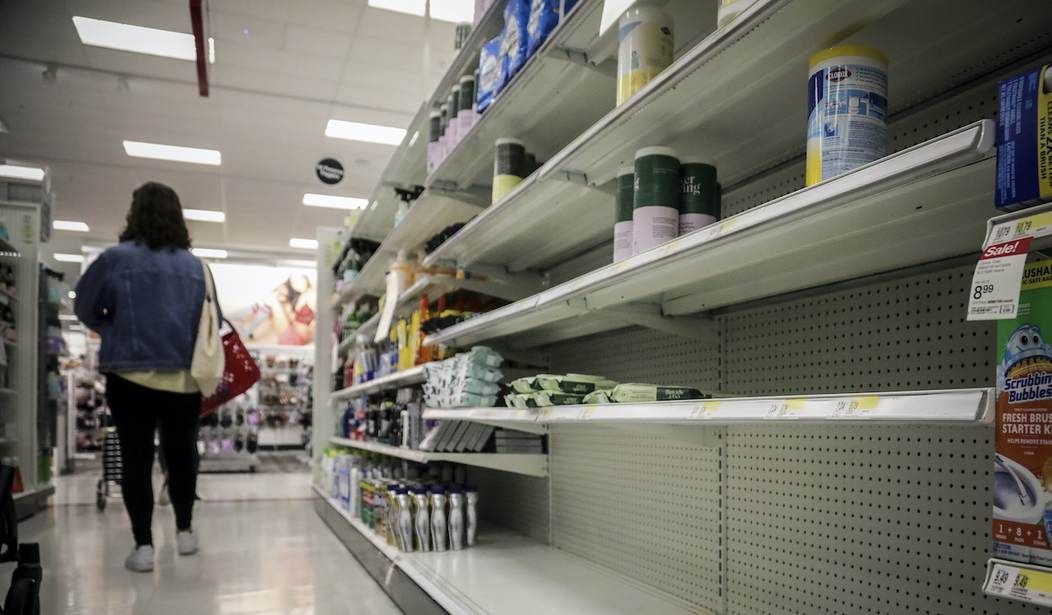There’s been a lot of ink spilled over the increase in gun and ammo sales. That’s not overly surprising, of course. It’s news and it’s something that a journalist is going to look at as an important data point that needs to be reported. Hell, that’s why I’ve written about it a few times.
The problem is, many of these reports, including ours, miss out on the big picture. We’ve all focused on the increased sales of guns, ammunition, and tactical equipment, but there’s only a cursory look at why many people are doing such.
Perhaps more importantly, though, is that these reports haven’t shown that people may not be wrong to be so concerned. For example, this is from a news report about the outbreak here in my backyard.
Supplies are getting low, Steiner said. For personal protective equipment–surgical gowns, masks, gloves, face masks and goggles–“We went through five months’ worth in five days,” he said. “We don’t have much left.”
That means the hospital needs to get more supplies and quickly. After all, we’re not even the worst of the outbreaks in Georgia.
The problem is, they’re not the only hospital that needs supplies and needs them badly. The COVID-19 virus is all over the country, enough so that our logistics system is already struggling to keep up.
For example, note the lack of toilet paper at your local store. There’s not a toilet paper shortage. There are still warehouses full of the stuff. The problem is getting it to the stores that need it in sufficient quantities. Especially since stores also need a whole lot of other goods besides toilet paper.
Regardless of our manufacturing base, the logistics problem is real.
Don’t believe me? Then why did the Federal Motor Carrier Administration just suspend the rule for how many hours a truck driver can put on the road in one stretch?
FMCSA’s declaration provides for regulatory relief for commercial motor vehicle operations providing direct assistance supporting emergency relief efforts intended to meet immediate needs for:
- Medical supplies and equipment related to the testing, diagnosis and treatment of COVID-19.
- Supplies and equipment, including masks, gloves, hand sanitizer, soap and disinfectants, necessary for healthcare worker, patient and community safety, sanitation, and prevention of COVID-19 spread in communities.
- Food for emergency restocking of stores.
- Equipment, supplies and persons necessary for establishment and management of temporary housing and quarantine facilities related to COVID-19.
- Persons designated by Federal, State or local authorities for transport for medical, isolation or quarantine purposes.
- Personnel to provide medical or other emergency services.
Remember, that rule was put in place for safety reasons. This suggests that the Trump administration has decided there’s greater risk in not letting these supplies through as quickly as possible than in allowing drivers to put in this many hours straight.
Meanwhile, even Amazon is feeling the squeeze. They’ve announced their prioritizing shipments to their warehouses for essential goods because they can’t keep up with demand either.
Now, at this second, there’s not a real shortage of goods. There’s no real reason for anyone to go out and try to go after supplies with brute force.
Yet the logistical system is strained already, and it’s still relatively early in the emergency with no clear indication how much longer this will proceed. If we’re going to see a massive drop-off in the next week or two, then great. No harm, no foul. We’ll have some new gun owners and a story to help people understand the importance of maintaining your own supplies beyond a few days or so.
The problem is, we don’t know if that drop-off is coming soon or not.
The longer the logistical strain continues, the great the chance of something breaking.
Plus, there’s the fact that a lot of places simply aren’t going to be producing new goods. Much of the raw materials used in American manufacturing come from China. The Chinese haven’t been producing much of anything for the last couple of months as the COVID-19 outbreak there has ground everything to a halt. That means sooner or later, even if factories have little concern about the virus spreading, they’ll still be forced to shut down.
When factories aren’t producing, those warehouses full of goods? They start to empty.
That means there comes a point that even if the virus stops spreading, we may still feel the effects of its impact on manufacturing.
And again, we don’t really know when the end is, which leads to uncertainty. That’s never a good thing at a time like this.
For a lot of you, you’ve got guns and a whole lot of ammunition. That’s good. I also suspect most of you have plenty of other goods standing by. That’s also very good.
I have a bad feeling you’re going to need it.








